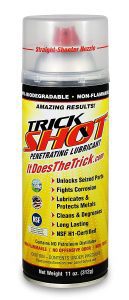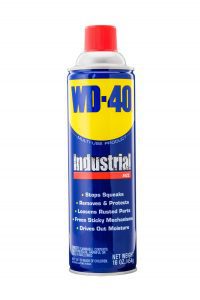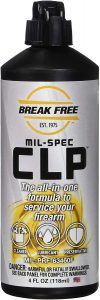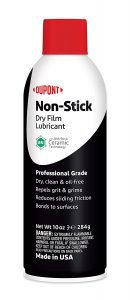The Best Industrial Lubricants
We looked at the top 6 Industrial Lubricants and dug through the reviews from 15 of the most popular review sites including and more. The result is a ranking of the best Industrial Lubricants.

Our Review Process
Don't Waste Your Money is focused on helping you make the best purchasing decision. Our team of experts spends hundreds of hours analyzing, testing, and researching products so you don't have to. Learn more.
Our Picks For The Top Industrial Lubricants
- 1. OAG Heavy Gauge Steel Windshield Rack Auto Cargo Management
- 2. Last Boks Plastic Truck Bed Organizer Box Auto Cargo Management
- 3. CURT 18153 Folding Basket Hitch Carrier Auto Cargo Management
- 4. MaxxHaul 70107 Universal Fit Hitch Carrier Auto Cargo Management
- 5. ZKSM Stretchable Mesh Nets Auto Cargo Management, 2-Pack
- 6. CZC AUTO Weatherproof Hitch Carrier Bag Auto Cargo Management
With rust protection and superior strength, this industrial lubricant can protect surfaces without wearing them down. The aerosol application helps it dissolve faster while also penetrating deeper. The formula resists clumping to give you a reliable application every time.
Versatile UsesThis fast-dissolving industrial lubricant can attaches well to a variety of surfaces, making it a versatile solution.
A low evaporation rate gives this industrial lubricant more versatile than some other options. The formula includes a rust inhibitor, as well as protection for the metal surfaces it coats. Those concerned about chemicals might prefer this formula, as its built to be nontoxic and eco-friendly.
Great for Everyday UseThis lubricant is specially formulated to be nonflammable and nontoxic for a great everyday option.
You’ll get 16 ounces of product with this option, along with a spray nozzle to make application easy. It not only lubricates and protects, but it also removes moisture. The formula makes it great for use on everything from wheels to hedge trimmers to bicycles.
Easy to UseA spray nozzle and 16-ounce size makes this a great multipurpose option.
If your equipment comes into contact with food, this food-grade lubricant is a great option. You’ll get protection even in extreme temperature fluctuation, making it great for a variety of applications. The lubricant resists oxidation and hydrolysis, providing the same protection throughout the lifespan of your equipment.
Extra DurableThis industrial lubricant remains stable with a wide range of temperature fluctuations to provide extra reliability.
Buying Guide
Friction is a big issue in any type of machinery. When two parts rub together, it can accelerate wear and shorten the equipment’s overall lifespan.
Just as you put oil in your car to prevent that damaging friction, manufacturers use lubricants to protect the equipment used every day. Not only does the right type of lubricant reduce wear, but it can also improve the efficiency of machinery and your operations as a whole. By keeping your equipment at peak performance, you’ll improve production and reduce the costly downtime that comes from malfunctions.
There are three types of lubricants: liquids, solids and greases. Each has its own benefits and applications, so it’s important to fully determine your needs before you buy. Here are the specifics of each type:
- Liquid lubricants—Oil is popular due to its ability to withstand high pressure. With high pressure, though, it can develop a thicker consistency. For this reason, manufacturers will often use extended pressure lubricants.
- Solid lubricants—Also known as dry film lubricants, these lubricants are made from solids like graphite and either directly attached to a surface or mixed with binders to create a protective layer between materials.
- Grease—This mixture of lubricant and a soap-based thickener can be great for protecting surfaces that are harder to reach. One disadvantage of grease-based lubricants is that they can accelerate a surface’s tendency to wear over time.
- Choosing the right lubricant starts with knowing your application. There are some products that are formulated specifically for various types of equipment. You can find industrial lubricants made from food-grade materials, for instance, and lubricants designed to keep gun parts clean and protected. Look at the pros and cons of each lubricant before making a choice.
Why we recommend these industrial lubricants?
Products Considered
Products Analyzed
Expert Reviews Included
User Opinions Analyzed
Our experts reviewed the top 6 Industrial Lubricants and also dug through the reviews from 15 of the most popular review sites including and more. The result is a ranking of the best of the best Industrial Lubricants.
DWYM is your trusted roduct review source. Our team reviews thousands of product reviews from the trusted top experts and combines them into one easy-to-understand score. Learn more.
The Best Bang For Your Buck
MaxxHaul 70107 Universal Fit Hitch Carrier Auto Cargo Management
Key Takeawy
If your equipment comes into contact with food, this food-grade lubricant is a great option. You’ll get protection even in extreme temperature fluctuation, making it great for a variety of applications. The lubricant resists oxidation and hydrolysis, providing the same protection throughout the lifespan of your equipment.
What other experts liked
What other experts didn't like
What to Look For
- Rust protection is an important feature in any lubricant. Over time, moisture can wear down a metal surface, shortening its lifespan. Some industrial lubricants also include corrosion protection.
- You’ll want a lubricant with the strength to hold up against the friction caused by metal parts. It’s important to balance this with the need for a product that dissolves quickly after application.
- Clumping can be a serious issue with lubricants. The product you choose should form an even protective barrier between parts.
- Each product has its own application method. Aerosol cans can be great for providing even distribution. An aerosol spray will also dissolve more quickly than poured liquid.
- It’s important that your chosen industrial lubricant adhere quickly to surfaces to give you reliable protection.
- Some products are designed to reduce the number of chemicals. These can be a nontoxic, environmentally-friendly alternative to other types of industrial lubricants.
- Industrial lubricants can be packaged in larger and smaller volumes. Casual users may prefer smaller packaging that’s easier to store.
- Household users can find lubricants that work for a variety of applications, including bicycles, landscaping equipment and car parts.
- For equipment that even occasionally comes into contact with food, look for a certified food-grade option.
- Temperature is a consideration with any liquid product you apply to equipment. Some are built to handle extreme temperatures. Check this tolerance before you use any industrial lubricant.
- For protecting gun parts, look for a lubricant that is formulated specifically for that purpose. Some can even wipe away residue to help keep your gun’s internal parts clean.
- If your mechanical parts will ever be in contact with moisture, make sure you have a lubricant that can handle the contact without diluting itself. Some gun part lubricants can even help protect those sensitive mechanics when submerged in salt water.
More to Explore
At one time, consumers were instructed to change their engine’s oil every 3,000 miles to extend its life. But getting oil changes can be costly if you outsource it and time-consuming if you do it yourself. The good news is, most car manufacturers have extended the distance a vehicle can travel between oil changes. Improvements in oil-based lubricants have allowed engine oil to operate efficiently for longer periods of time.
The exact time your car can go between oil changes depends on the type of driving you do and the specific vehicle you drive. Make sure you check your vehicle’s user manual for specifics related to your own car. If you drive an older car, it might be safe to stick with the 3,000-mile recommendation, but for newer vehicles, you can often go 5,000 to 7,500 between oil changes. With full-synthetic motor oil, some vehicles can go as far as 15,000 miles.


















